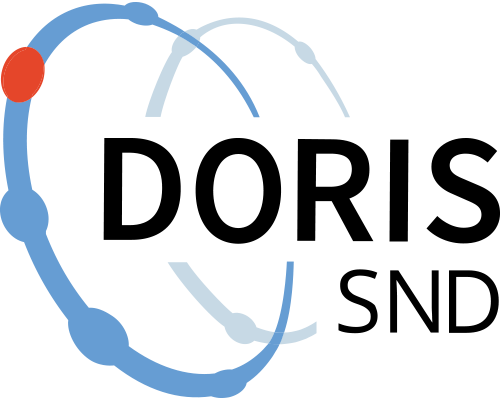European Parliament election study 1995
https://doi.org/10.5878/002083
Sweden joined the European Union on the 1st of January 1995, and the first election to the EU-parliament was held on the 17th of September 1995. As in connection with all general elections and referenda held in Sweden since 1956, an election study was carried out. The main subject of the survey was the European Union and the respondent's attitudes toward the Swedish EU membership, but the survey also includes a number of questions asked in one or several of the Swedish election studies.
General questions about politics included exposure to news in different media; interest in politics; opinion on political parties and their party leaders; trust in Swedish politicians; opinion on the social democratic government; party preferences; placement of respondent and the political parties on a political left-right scale. Furthermore the respondents had to state their opinion on a number of currently debated issues. The respondents had to give their opinion on a number of EU-related issues such as a united Europe; the future Swedish relation to EU; confidence in decisions made within EU; and a development of EU towards a federation. Respondents also had to place themselves as well as the major political parties on scales showing if they were for or against a Swedish EU-membership, if they were for or against a common European currency, and if they were for or against the abolition of borders between nations. A number of questions dealt with the election to the EU-parliament such as participation; issues important for the decision how to vote; when the respondent decided how to vote; most important reason to vote; knowledge of candidates; opinion on the different candidates; and exposure to the election campaign. Nonvoters were asked about the reason not to vote, and voters were asked if they used the possibility to vote for a specific person. Demographic item include gender, age, marital status, children, education and occupation.
Purpose:
Explain why people vote as they do and why an election ends in a particular way. Track and follow trends in the Swedish electoral democracy and make comparisons with other countries.
Documentation files
Documentation files
Citation and access
Citation and access
Data access level:
Creator/Principal investigator(s):
- Sören Holmberg - University of Gothenburg - Department of Political Science
- Mikael Gilljam - University of Gothenburg - Department of Political Science
- Statistics Sweden
Research principal:
Data contains personal data:
No
Citation:
Language:
Method and outcome
Method and outcome
Data collection - Face-to-face interview
Data collection - Face-to-face interview
Geographic coverage
Geographic coverage
Administrative information
Administrative information
Topic and keywords
Topic and keywords
Relations
Relations
Publications
Publications
Versions
Versions
Metadata
Metadata
Versions
Versions
